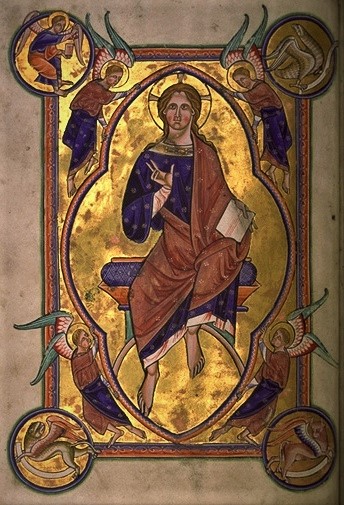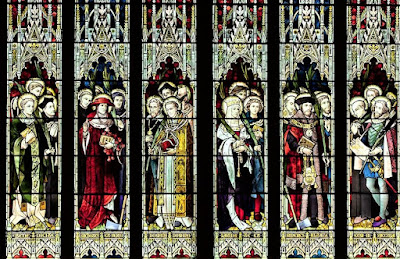Jesus said, "If you love me, you will keep my commandments. And I will pray the Father, and he will give you another Counselor, to be with you for ever."
- St. John 14:15, 16
As Jesus made this promise of the Holy Spirit, He made it with the requirement that we love Him. And as we learn what love is, we know it is an action and not primarily a feeling. Love is an act of the will, not the state of our mood. Love is an action of one toward another. We love by doing.
And when He says that we are to keep His commandments, He means that we are to guard them, and treasure them as what is most precious in this life. When we keep His commandments, it shows our love for Him. It’s in the keeping of His commandments – the treasuring of His word – that we establish and strengthen the most important relationship in our lives, the one we most need, that is, our relationship with God. And that relationship He seals with the gift of the Holy Spirit.
We were created for this – to know God and to love Him, and to be with Him forever. And it is in that relationship that we find the “peace which passeth all understanding.” Isn’t that what we want in the midst of this sometimes-crazy world? Peace? Of course it is. It is by having that peace that we can cope with anything that comes our way. It is when we keep Christ’s commandments, and so show our love for Him, that we can forgive when we have been wronged. It is by keeping Christ’s commandments, and so loving Him, that we can choose to do the right thing, the noble thing, which makes sense of St. Peter’s words when he writes in his First Epistle, “Always be prepared to make a defense to any one who calls you to account for the hope that is in you, yet do it with gentleness and reverence; and keep your conscience clear, so that, when you are abused, those who revile your good behavior in Christ may be put to shame.”
Every one of us, at some time or another, has been treated badly by someone. Every one of us has experienced injustice. Sometimes it’s done to us by institutions. Sometimes it’s done to us by the very people who should be supporting and caring for us. And yet, if we are keeping Christ’s commandments – that is, if we’re doing what is right – St. Peter reminds us that “it is better to suffer for doing right, if that should be God’s will, than for doing wrong.”
It is difficult, isn’t it, to show love when we have been wronged, or slandered, or have been done real injury by someone. And yet, it is the command of Christ that we must love God by loving others – even those who hate us. So when opportunities of showing kindness, or being merciful, or of denying oneself for the sake of others – when any of those things occur, let’s not allow them to pass by, but rather make use of them. Our lives must be, insofar as possible, an imitation of the gracious, loving, tender, sympathizing, self-sacrificing life of Jesus Christ Himself.
We bear Christ within us. We have been marked with His cross. We live in the power of His resurrection. And Christ promises us the Holy Spirit to help us in our weakness, and who will strengthen us with His gifts and supernatural virtues – gifts and virtues which enable us to live as holy and faithful disciples of Christ – choosing the right, not returning hatred for hatred, not seeking to destroy those who would try to destroy us.
The bottom line is this: the closer we are conformed to Christ – that is, the more we keep His commandments and the more we show His forgiveness - then the more we will be showing our love for Jesus Christ, our Lord.
When we do as Christ asks, we find that it works. Forgive others, even if it has to be an act of the will. And you will have that “peace of God, which passeth all understanding” which will keep your heart and mind in the knowledge and love of God.
____________________________________
Painting: "Christ Crowned with Thorns" by Carl Bloch (1834-1890)







.jpg)






